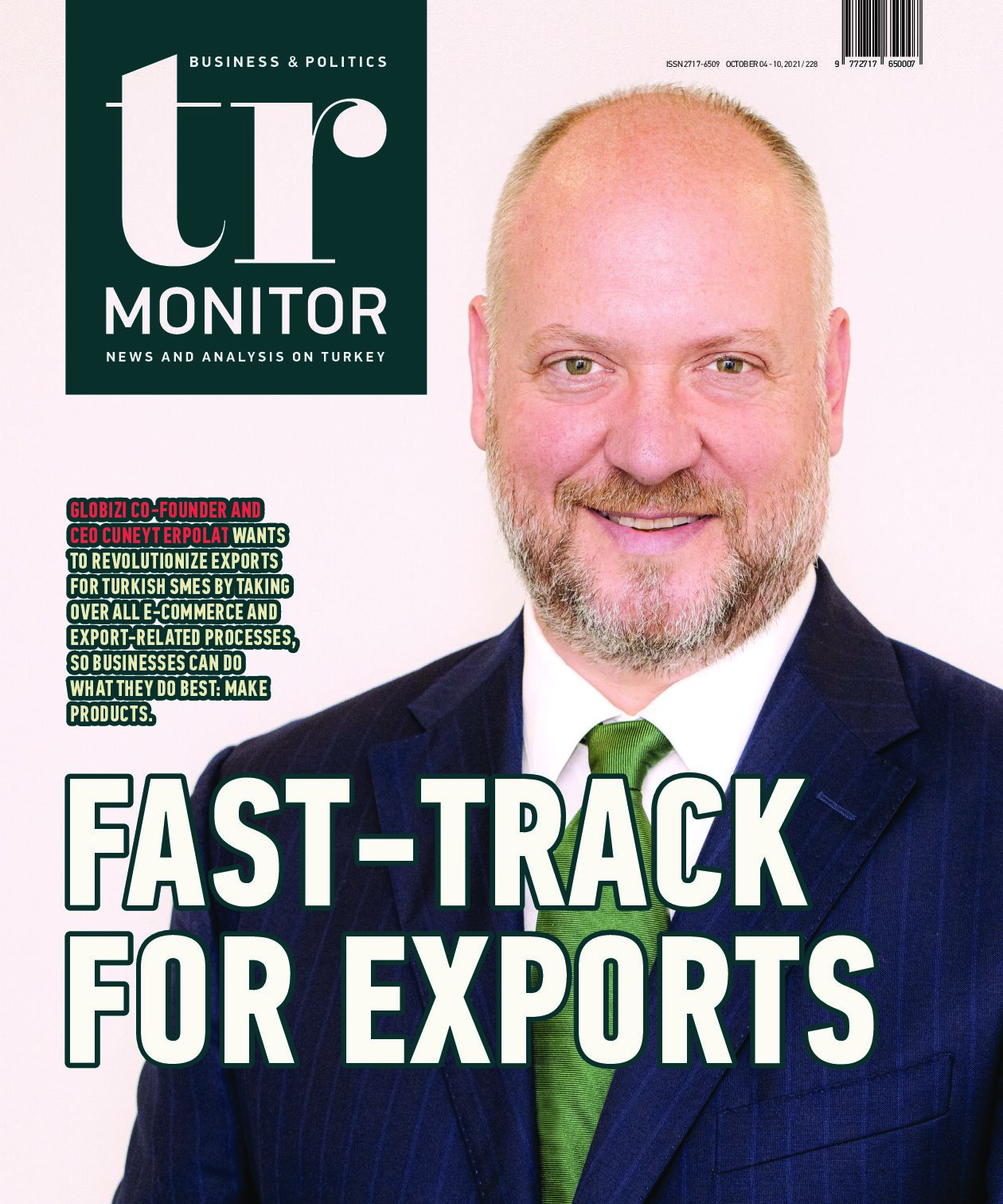By DIDEM ERYAR UNLU
Globizi, which launched activities as of September as an e-commerce and e-export business partner for Turkish companies, aims to create an end-to-end e-export ecosystem for businesses of all sizes that want to open up to international markets, drawing in more and businesses to digital change and transformation.
After more than eight years as Alibaba’s country manager in Turkey, Globizi Co-Founder and CEO Cuneyt Erpolat has developed a solid reputation in the e-commerce sector and among small and medium enterprises (SMEs). In an exclusive interview with daily DUNYA, Erpolat outlined the benefits of the end-to-end e-export ecosystem for SMEs and what role his new company will take.
E-commerce has gone from being a branch of the daily trade flow to becoming the main trade flow in the last 20 years, according to Erpolat, “The fact that e-commerce and the internet offer equal opportunities for businesses and people has resulted in a level playing field for companies of all sizes when it comes to accessing customers and new markets,” he says. “This has heralded incredible opportunities, especially for small and medium enterprises (SMEs), which are the lifeblood of countries. SMEs now have the same marketing tools as big companies.”
However, unfortunately, all this has not been enough to open marketing channels for SMEs, Erpolat believes. “In order for SMEs to fully benefit from these equal opportunities, it has become necessary to be literate in e-commerce, have knowledge of foreign trade, logistics, insurance and banking systems.”
For this reason, he founded Globizi with the idea of supporting SMEs in these issues.
Globizi promises to remove the hassle of processes related to e-commerce and e-exports from SMEs so they can do what they do best: produce quality, affordable products. There are currently more than 3 million SMEs in Turkey. The total number of companies exporting from Turkey in 2020 was 87,741, only of 1.3% of which are engaged in e-exports.
‘A win-win game’
As Globizi is designed to be the e-commerce and e-export business partner of companies, instead of advising or training companies on e-commerce and e-exports it wants to be the party that creates, establishes and operates the processes directly on their behalf, and manages all these processes for them. “The main theme of this business model is to play the win-win game where all interested parties benefit from the additional value created mutually rather than sharing what is there, within an e-commerce ecosystem that provides end-to-end services.”
Globizi provides services for SMEs in areas such as target product, market analysis, platform analysis, e-commerce profile creation, product management, marketing activities, trade and order management, logistics and customs clearance. The main benefits that Globizi’s business partnership will provide to SMEs include engaging in e-exports, entry into new markets, commission fee taken only on actual trade, end-to-end process control, total cost savings, zero personnel employment risk, target-oriented marketing and a peerless team, says Erpolat.
The wake-up effect of the pandemic
“We have been suggesting for years companies start e-commerce activities as soon as possible, in every environment,” Erpolat says. “E-commerce has become irreplaceable for the companies that underestimated this advice compared to a year ago, with physical contact and travel becoming impossible during the pandemic and nearly all corporate purchasing shifting to digital platforms. Although we never want to experience a pandemic or a similar devastating disaster again, we must admit that the wake-up effect of the pandemic on the e-commerce side was big, especially for our country.”
One of the biggest problems in Turkey is the extremely limited number of trained, e-literate people, according to Erpolat. There were basically two issues that Globizi said it would not do when it set out: To provide training and to provide consultancy. Their business model is based on directly taking control of the processes and managing e-exports and e-commerce activities for the manufacturers they work with in a way that places zero burden on them.
On the job training
“However,” Erpolat says, “this does not mean that we will not offer companies human resources or know-how transfer during the time we work with them. Since all the negotiations and processes with the companies we work with will be completely transparent, it will be possible for their employees to learn the job and experience the direct applications related to their job first hand.”
Thus, Globizi will be offering SMEs a level of on-the-job training that no institution can actually provide them.
THE GREEN DEAL OFFERS MID-TERM OPPORTUNITIES: GLOBIZI CO-FOUNDER
The Green Deal issue is actually an opportunity for us, according to Globizi Co-Founder Cuneyt Erpolat. “It is obvious that carbon emission values should be reduced globally within the framework of a sustainable environmental and economic order. In such cases, the real progress is usually made after the issue starts to have economic consequences,” he says, adding that the additional taxes to be applied by the European Union (EU) for the products to be imported from Turkey, based on the carbon footprint of the production phase, will lead all enterprises, including SMEs producing in our country, to review their production processes and to reduce their carbon footprint. Although there will be certain cost increases at first, Erpolat believes that it will provide great benefits in terms of eliminating additional taxes on the EU side and using the country’s resources efficiently in the long run.
SUPPORT SMES ON GREEN DEAL
The Green Deal is also on Globizi’s agenda, Erpolat says. With the introduction of the Green Deal, the company will support and lead efforts of Turkish producers to reduce their carbon footprint during the production phase to the permissible level, as they will encounter additional taxes if they do not comply, which would hurt their competitiveness. “As Globizi, it is our priority and wish to work in a scenario where carbon emissions are gradually reduced, both for commercial purposes and for the protection of the environment.”










